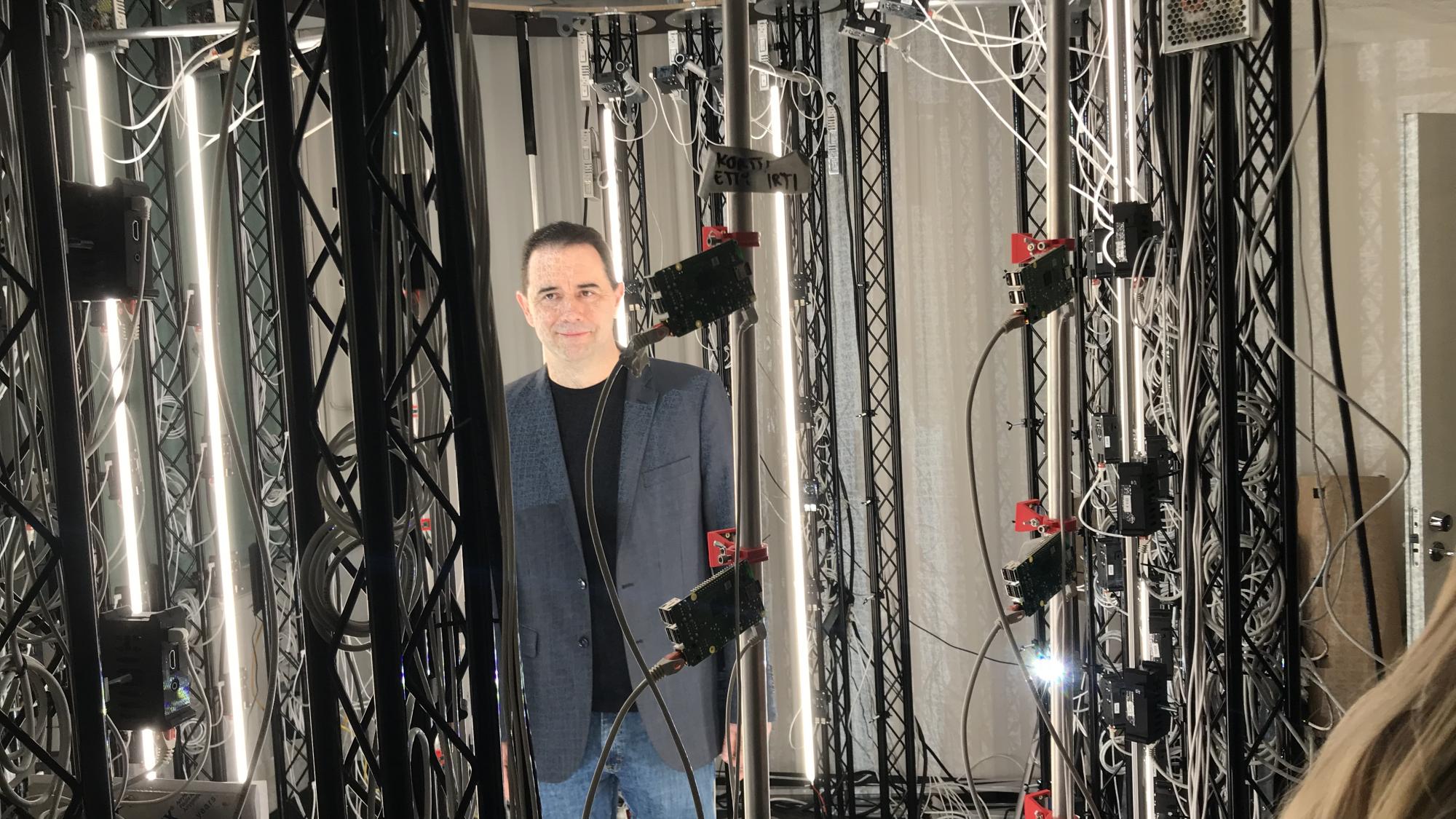The European Research Council has announced today the winners of its 2020 call. The esteemed ERC Advanced Grant has been awarded to our professor Steven LaValle for the realisation of the 5-year ILLUSIVE project (2,5M€) in which he and his team will create foundations for perception engineering, which expands the concept of virtual reality (VR) to span several disciplines.
VR technology has enormous potential to transform society, especially as the world faces unprecedented challenges of remote work and social distancing brought on by COVID-19. VR creates perceptual illusions that can uniquely enhance education, collaborative design, health care, and social interaction, all from a distance. Further benefits include highly immersive computer interfaces, data visualisation, and storytelling.
The granted ILLUSIVE project will develop mathematical and scientific foundations for an emerging discipline that the researchers call perception engineering.
“Based on my research perspective, industry leadership, and basic curiosity, I envision a building unified foundation for perception engineering, in which the time-tested principles of engineering are applied to create perceptual illusions,” says professor LaValle.
The long-term community goal is to develop principled approaches to design, simulate, predict, and analyse sustained, targeted perceptual illusions.
“This will greatly reduce the gaps between the current disciplines spanned by VR and robotics and yield vibrant growth in terms of deep understanding and successful system building in the coming decades,” expects LaValle.
This involves systematically studying the essential elements of VR in a way that encompasses both biological systems and robotics and autonomous systems, thereby gaining insight into both. The key insight is that perceptual illusions themselves are the target, which must be developed using the time-tested principles of engineering.
“The mathematical foundations will be built upon the notion of ‘information spaces’, which can be traced back to the work of John von Neumann on game theory. I have extended and developed information spaces as a model for robot brains for nearly three decades. To span the disciplines of this project, my team includes experts from the areas of neuroscience, psychology, robotics, control theory, virtual reality, and mathematics,” LaValle highlights.
ERC calls are open to researchers of any nationality. In this call, European Research Council received 42% more ERC Advanced Grant applications than the previous year, for a total of 2 678 applicants in all fields of research. This call was the harshest selection of the ten years, as only 7.8% of them, 209 scientists and scholars from 25 nationalities received funding.
“This was great luck in an unlucky year. This absolutely would not have been possible without the supportive community and culture of Finland, which my family and I have continued to appreciate since moving to Oulu in 2018. I would like to thank my whole research team, who provided many key insights and supporting materials for the proposal when it was written last summer. I feel privileged and honored that the European Union will support my team to pursue such fundamental and curiosity-driven research.”
Apart from strengthening Europe’s knowledge base, the new research projects will also lead to creating some 1 900 new jobs for post-doctoral fellows, PhD students and other research staff. The future grantees will carry out their projects at universities and research centers across 14 EU Member States and associated countries with the UK (51 grants), Germany (40), France (22) and Netherlands (17) hosting the highest numbers of grants. Finland got 5 grants.
The European Research Council, set up by the European Union in 2007, is the premier European funding organisation for excellent frontier research. Every year, it selects and funds the very best, creative researchers of any nationality and age, to run projects based in Europe. The ERC offers four core grant schemes: Starting, Consolidator, Advanced and Synergy Grants.
ERC Advanced Grants are designed to support excellent Principal Investigators at the career stage at which they are already established research leaders with a recognised track record of research achievements. Principal Investigators must demonstrate the ground-breaking nature, ambition and feasibility of their scientific proposal.
Additional information:
ERC Advanced Grants: 209 top researchers awarded over €500M
Read the story about how Steven LaValle chose Oulu.
Information about the Perception Engineering Lab at UBICOMP research unit.
Source: https://www.oulu.fi/en/news/steven-lavalle-received-significant-erc-funding-build-foundations-perception-engineering

